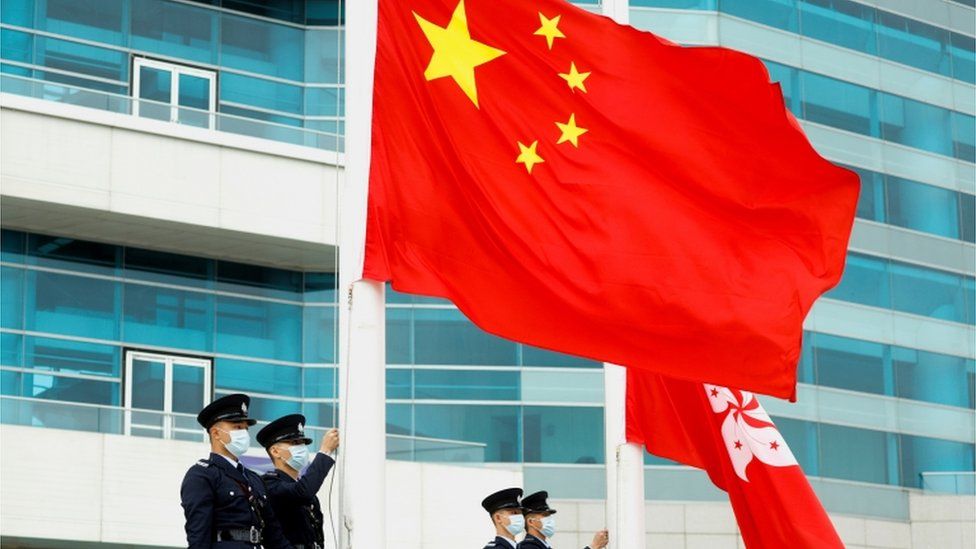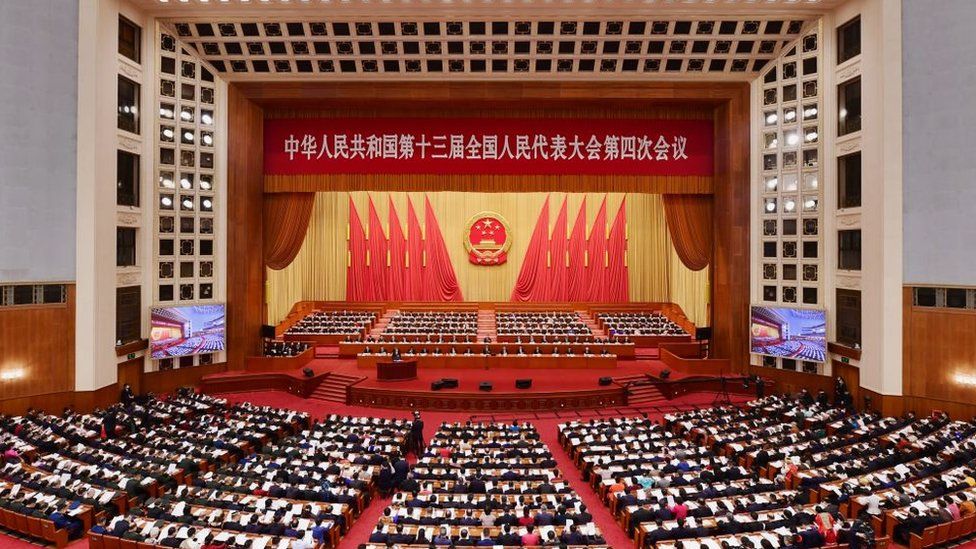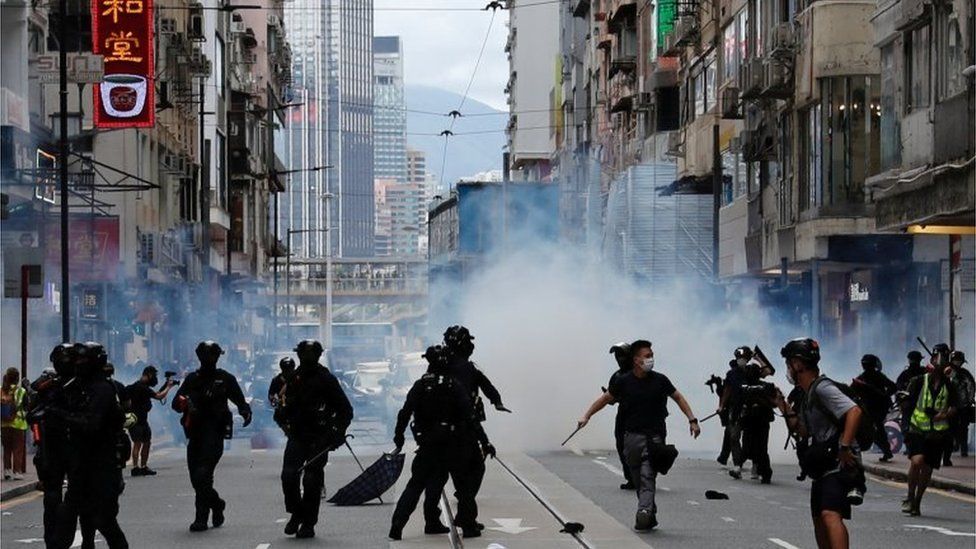
China has passed several changes to Hong Kong’s electoral rules which will tighten its control over the city, state media has said.
The aim of the reforms is to ensure that only “patriotic” figures can run for positions of power.
The changes mean that prospective MPs will first be vetted for their loyalty to the mainland.
Critics warn it will mean the end of democracy, as it removes all opposition from the city parliament.
Beijing’s rubber-stamp parliament first approved the plan during the National People’s Congress (NPC) meetings earlier in March.
On Tuesday, Chinese state media reported that the country’s top decision-making body, the NPC Standing Committee, voted unanimously to pass it. This amends the annexes of Hong Kong’s mini-constitution, the Basic Law.
Details of the plan are expected to be announced shortly, and Hong Kong’s leader Carrie Lam is due to hold a press conference.
But details released in earlier state media reports have indicated that the plan will see changes to Hong Kong’s parliamentary Legislative Council (LegCo), effectively making it easier to bar politicians deemed critical of Beijing.
All prospective candidates will be vetted, and the influence of democratically-elected members in LegCo will be diluted.

All opposition to the Chinese Communist Party has effectively been obliterated from formal politics in Hong Kong.
When these changes were announced a few weeks ago, they drew criticism internationally.
On Twitter, Australia’s Foreign Minister Marise Payne spoke of her country’s concern that the new arrangements in the territory would “weaken its democratic institutions”. That was being kind.
The US Secretary of State, Antony Blinken, described the moves as an “assault on democracy”.
The truth is, the city’s electoral system was already rigged to ensure that the “pro-Beijing” camp could never lose control of the mini-parliament, the Legislative Council.
Its leader, the Chief Executive, was already directly chosen by a pro-Beijing committee.
The last time the only real elections in Hong Kong were held – those for local governments – the pro-democracy camp took control of all but one district council right across the city.
This clearly spooked Beijing so now they’ve stopped pro-democracy candidates from standing at all.

There’s controversy over whether these reforms will change the Basic Law – an agreement struck between Britain and China when Hong Kong was handed back to the mainland in 1997.
It enshrines basic freedoms for Hong Kong until 2047.
The new reforms are written not into the Basic Law itself, but into its annexes, which Beijing has the right to do.
So while Hong Kong’s pro-Beijing camp says the changes do not impact the constitution, the pro-democracy side insists they do.
“Technically, it’s not a change to the Basic Law,” Ian Chong, politics professor at the National University of Singapore, told the BBC.
“But in terms of [affecting] the spirit of having competitive elections and moving towards universal suffrage, it would be.”

The changes come months after several opposition lawmakers were disqualified, which led to the entire opposition in LegCo resigning.
If a future veto keeps critics out of LegCo, such public embarrassments would be much less likely.
Several local elections are coming up during 2021, although it’s not clear yet when the new law would be effective.
What’s the background?
The handover agreement between Britain and China gave the territory more freedoms than the mainland, supposedly ensuring those freedoms would remain untouched for 50 years until 2047 under a “one country, two systems” principle.
Since then, Beijing has gradually stepped up its influence on Hong Kong. Critics allege that China is violating the agreement but Beijing denies this.
After years of pro-democracy protests, fresh demonstrations in 2019 escalated into waves of violence between activists and police – and major gains for the opposition in local elections.

In 2020, Beijing then passed a controversial national security law, also adding it to a Basic Law annex, which essentially reduced Hong Kong’s judicial autonomy and made it easier to punish demonstrators.
Since then, a string of critics have been arrested under the law, which carries life in prison as a maximum sentence.
